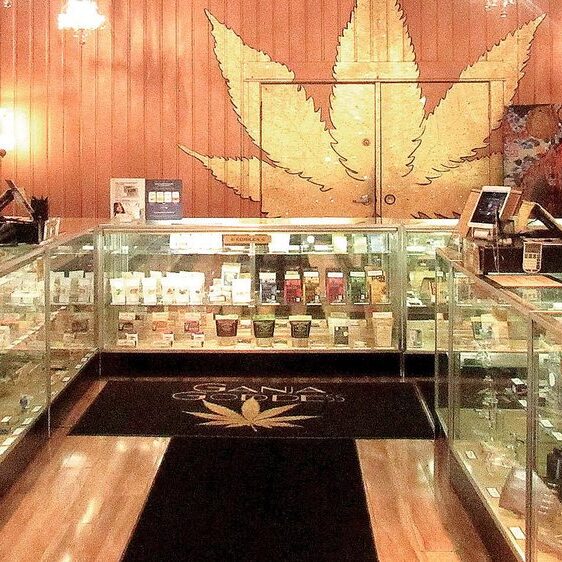Real estate investor and developer Michael Comras lost his bid to open a medical marijuana dispensary in Miami’s MiMo Biscayne Boulevard Historic District.
But he is not calling it quits — he will appeal to a higher authority.
Comras, CEO of Miami Beach-based The Comras Company, and Elad Kohen’s The Flowery, a licensed medical cannabis provider in Florida, had asked the Miami Planning, Zoning and Appeals Board to overturn Miami city staff’s denial of the certificates of use needed to open dispensaries.
On Wednesday, the board voted 5-4 against the requests.
The outcome is the latest in the ongoing medical cannabis saga in Miami that has touched off a firestorm between real estate owners and the Miami administration. City Attorney Victoria Méndez has long maintained that even if the use is approved in Florida, it still is an illegal drug under federal law. Miami code says that if two laws conflict on the same issue, the more restrictive law takes priority, she has said at meetings.
An affiliate of Comras wants to open a store at its two-story retail building at 6901 Biscayne Boulevard. Entities tied to The Flowery propose dispensaries at Moishe Mana-owned buildings at 2222 Northwest Fifth Avenue in Wynwood and at 172 West Flagler Street in downtown.
Louis J. Terminello, the attorney for Comras and The Flowery, said they will appeal the board’s decision to the city commission.
“Losing by one vote is always difficult, especially on an issue they had already ruled upon and overwhelmingly approved before,” Terminello said. “But we have every expectation of success in front of the commission.”
Another real estate investor who has sought to open a dispensary in Miami is Marc Roberts, although he has been more successful. Roberts, who on Wednesday withdrew his push for a dispensary at his building 60 Northeast 11th Street, already has approval for one at a nearby building at 90 Northeast 11th Street in downtown Miami. Roberts owns the property with Los Angeles-based real estate investor Romie Chaudhari.
In February of last year, the planning board had granted Roberts’ appeal of staff’s denial for a certificate of use. Then, Miami administrators took the issue to the Miami City Commission, which in May sided with Roberts with a 5-2 vote.
Before winning the commission’s approval, an affiliate of Roberts and Chaudhari also sued the city over the matter in state court. Miami tried to move the case to federal court where it could argue marijuana is illegal under U.S. law, but Judge K. Michael Moore wrote in his order that it’s state law that gives cities the authority to ban or regulate the use. Miami never outlawed the use, but the city attorney’s stance essentially created a de-facto ban.
The city’s tangled and contentious medical pot history made for a vigorous discussion by planning board members on Wednesday.
If Miami allowed Roberts a dispensary, but not others like Comras, the city could be accused of disparaging treatment of the same type of business, said Hector Luis Silva Jr., who voted in favor of Comras and The Flowery.
Others pushed back, saying the planning board and the city are not obligated to give blanket approval to businesses, whether they be bars or dispensaries. But in Miami, medical marijuana could be abused, as the city is “notorious” for being a hotbed where anything like emotional support animals, accessible parking and opioids are abused by users, said Alex Dominguez, who was a no vote.
“There’s going to be a bunch of people trying to get their hands on medical marijuana that don’t need it,” he said, “and a bunch of people who need it who won’t be able to get it.”
The question of why commissioners still have not carved out rules for where dispensaries can open was central to the debate. State law mandates they be regulated the same way as pharmacies and also be at least 500 feet from schools, but some cities such as Miami Beach have imposed additional rules like spacing requirements between dispensaries.
“Maybe because it’s medical marijuana and some of our commissioners are saying, ‘Oh, I am not going to touch that one,’” said planning board member Anthony Parrish, who cast a no vote on the dispensaries. “I do know medical marijuana seems to be coming this way regardless. I just don’t want to be the one to say, ‘Yeah, I will step in and decide I am in favor of medical marijuana,’ and everyone in the city is going to have to live with my decision.”
With the city attorney arguing dispensaries are illegal, but commissioners approving Roberts’ store, the planning board has no clear direction on Miami’s stance on the use, said board chair Charles Garavaglia. The board should not be put in this circumstance, he said.
The board voted 7-2 to ask the administration to draft a law that would address dispensaries, which will come back for a public hearing.
Adam Gersten, who on Wednesday voted in favor of the dispensaries and to have staff come back with regulations, said ultimately the proposed Comras and The Flowery sites are within commission chairwoman Christine King’s district, and she already spoke her mind by voting in favor of Roberts’ downtown store.
As for the city attorney’s opinion on the state and federal law conflict, he called that “legal fiction.”


